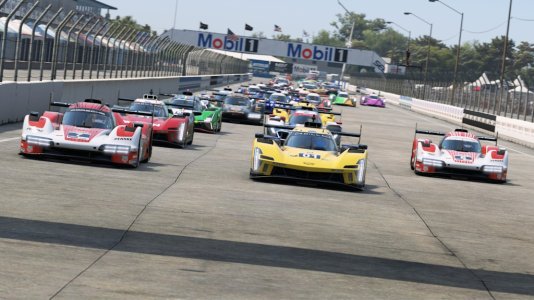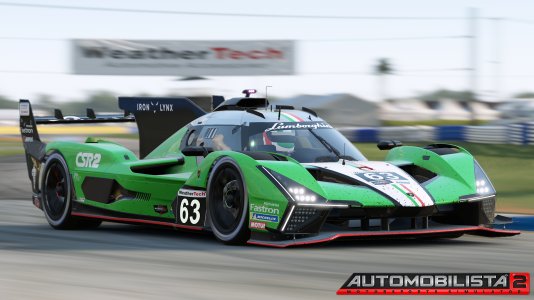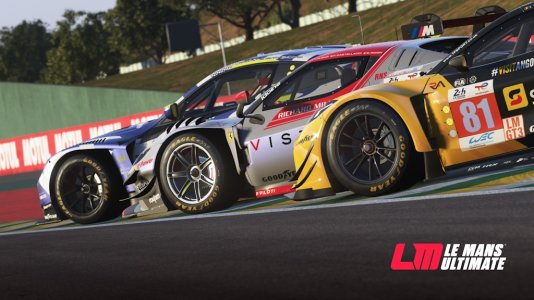After two relatively peaceful rounds for the driver relationship at Mercedes, the events in China may mark a return to hostilities…
It only took three races, but we have our first driver spat at Mercedes for 2015.
In leading home another 1-2 to claim both his and the German team’s second win of the season, it’s hard to argue Lewis Hamilton didn’t do everything that was required of him on Sunday – that is, unless you’re Nico Rosberg.
Never really able to challenge for the lead on Sunday, Rosberg was quick to voice his belief that Hamilton knowingly kept his second-stint pace such that it would place the German under threat from Ferrari’s Sebastian Vettel. And while that threat failed to amount to anything, it was enough to kick-off to fan the flames of F1’s biggest current rivalry.
Whether Hamilton-to-Rosberg or Rosberg-to-Hamilton, the accusations of one Mercedes driver sabotaging the other’s race is something we’ve heard before, and if history is any indication, it’s one that’s sure to linger. So, let’s wade into the familiar waters of ‘Hamilton v Rosberg’, and see what other talking points came ashore in the aftermath of the Chinese Grand Prix.
If there’s anything we’ve learnt about the Hamilton-Rosberg relationship in the past 16 months, it’s that it tends to be more inconsistent than the application of physics in a Fast and Furious movie. Depending on when you catch them, each driver’s opinion of their counterpart will range from friend, to enemy, to co-worker, to rival – or even to saboteur. It’s a relationship that seems to sour on a moment’s notice, over slights perceived as much as real, and that’s what makes this particular case so interesting – it has a bit of both.
Let’s start with what’s ‘real’ – what exactly could give Nico reason to be so annoyed? Well, we know Hamilton was deliberately holding back pace. The first call from Rosberg to get his teammate to speed up came on lap 20, and Hamilton was told to do so immediately afterwards. After recording a best of 1:43.508 on lap 27 (compared to Rosberg’s 43.479), Hamilton was told to maintain a target time of 1:43.3 on lap 28. However, the Brit stayed in the 43.6’s until lap 30, when he dropped to a 43.239. By lap 33, he had hit a 1:42.208, yet he pitted a lap later. As talented as we know Hamilton is, that’s a staggering improvement for someone who you would assume was on tyres at the end of their life – to do so with such ease, and essentially at will suggests Hamilton’s earlier intention was to manage the gap instead of build it.
At the same time, where Rosberg’s perception overshadows reality is in the respect that Hamilton has an obligation to give his teammate a chance of winning the race. And while Hamilton may not have played the role of perfect teammate, he didn’t jeopardise the 1-2. What Lewis did do is shift Nico’s preoccupation from passing him to instead covering off Vettel, meaning he had to pit when Seb did. Considering Rosberg later admitted he didn’t have the pace to pass Hamilton, the only way Rosberg could have pulled out the win was to start his third stint later than his teammate, and let degradation play its part. As such, who can blame Hamilton for trying to eliminate the possibility of such a late-race charge in the first place?
So as much as Rosberg is correct – Hamilton did back him up – he doesn’t really have a right to complain. Everything coming out from the Mercedes brain-trust seems to suggest they’re happy with how things proceeded, and they have no real reason not to be. Frankly what Hamilton did was masterful racecraft – the sort of thing you can only pull off when you have the utmost confidence in yourself and the car. If Rosberg wants to get back in the fight, he’s got some serious work to do.
For a team with as much promise as Williams had after their end to 2014 and pre-season testing, it’s clear the Grove outfit has fallen a rung on the totem pole.
Despite possessing the best engine on the grid, two very capable drivers and a well-regarded design team, on Sunday they seemed closer in pace to the newly Mercedes-powered Lotus than they did their factory brethren.
Perhaps this is the part where the unfortunate reality of the team’s financial situation hits – they could never hope to match the spending of Mercedes or Ferrari, and now that the latter has the car and power unit to build on, it will simply join the former in pulling away.
Perhaps, as a Spanish media report alleged this week (per Grandprix24/7), it is because of a disparity in the power units used by Mercedes and their customers. While such accusations seem a bit far-fetched, at the very least it raises questions about the scrutiny applied to the engine supplier-customer relationship, and just what assistance is afforded to customers in terms of developing the engine alongside their car.
In any case, while no-one’s pre-season expectations had Williams neck-and-neck with Mercedes, the hope was they could at least play a similar role to that of Ferrari and pull the occasional spoiler. To see the team this far back is disheartening. The spending gap should only help their rivals pull away as the season progresses, making it hard to forecast them beating the highs of 2014. If great gains are to be made, they have to happen in the very near future.
If there was one driver who stood out in Shanghai, it was 17-year-old Max Verstappen – but is that enough to compare him to Ayrton Senna?
Such were the connotations thrown around during Sky Sports’ race coverage to describe the Dutchman’s outstanding performance. In combining unbridled aggression with inch-perfect car control, Verstappen showed the talent that has put him on the map at such a young age, but comparing him to Senna and Michael Schumacher (as Sky were so eager to do) seems unfair for a driver just three races into his career.
It’s unfair because one race does not make a career, and he has a long way to go to become a multiple-times world champion. In the event that happens, he is sure to make plenty of mistakes along the way – all you have to do is look at TR-graduate Daniel Ricciardo’s shaky drive on Sunday for proof of that.
Between them Senna and Schumacher have a total of 10 world championships, with the first for each coming at 28 and 25 respectively. Obviously Max has an age advantage in this respect, but it goes to show it takes time to reach the top. The hope is he gets that time and makes the most of it. For all we know right now, he could end-up closer to Jaime Alguersuari.
After three races, what Max has shown is that he was undoubtedly ready to move up to the big time. Red Bull put their drivers in Toro Rosso to get the experience of Formula 1 without the immediate expectation of having to contend for championships. Someone with the background of Verstappen is sure to pile on the extra pressure himself, in the meantime, let’s step back and let this 17-year-old simply enjoy his first steps into Formula 1.
What’s your view on Hamilton-Rosberg Part CMXI? Are Williams stuck in a rut? Is it fair to compare Verstappen to the sport’s all-time greats already? Sound off in the comments below.
Last edited by a moderator:









